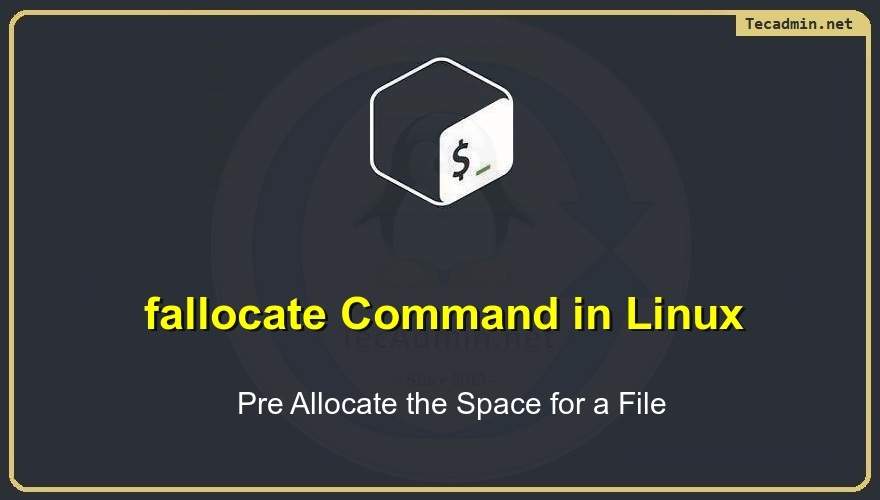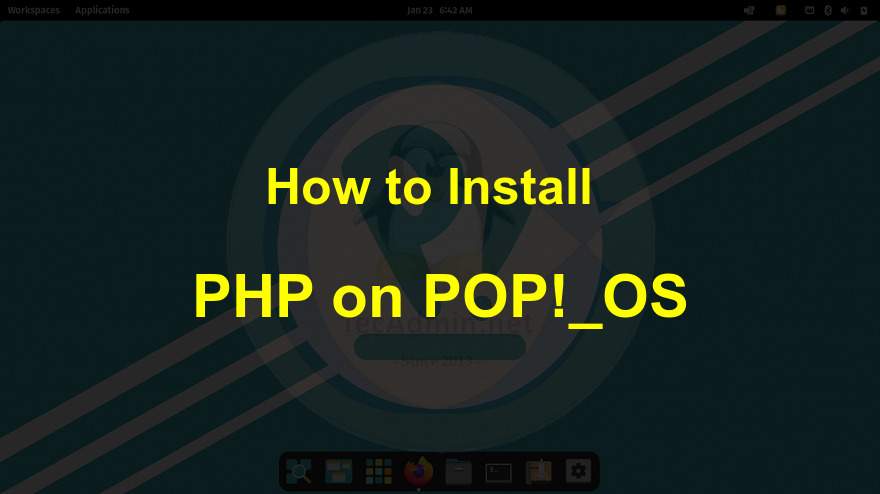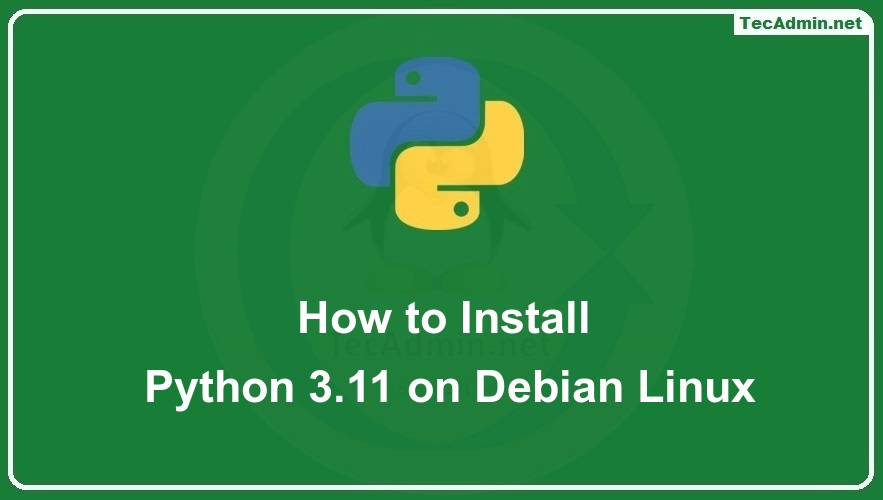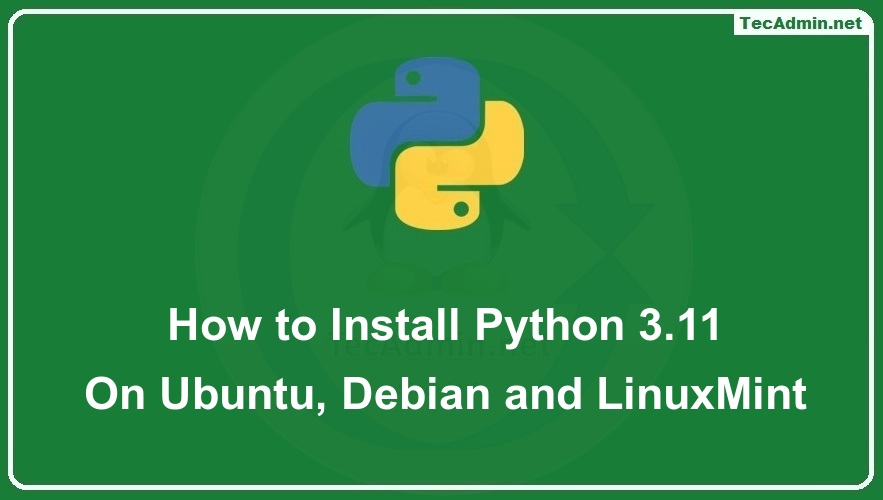Sparse files in Linux are a type of file that takes up less disk space than a regular file. They are files that contain large blocks of zero bytes, and these blocks are not actually written to disk. Instead, the file system records the location and size of these blocks, and the zero bytes are filled in as needed when the file is read. This allows sparse files to take up much less disk space than a regular file that is the same size. Why Use Sparse Files? There are several reasons why you might want to use sparse files…
Author: Rahul
The `fallocate` command in Linux is a tool used to preallocate space for a file. It is a faster alternative to the traditional method of creating a file and filling it with zeros. This command allows you to quickly allocate space for a file without actually writing any data to the file system. In this article, we’ll explain what the `fallocate` command is, why you might use it, and provide examples of how to use it. What is the fallocate Command? The `fallocate` command is a tool used to allocate disk space for a file on a Linux file system.…
Amazon S3 is a highly scalable and durable object storage service that allows you to store and retrieve any amount of data from anywhere on the web. S3FS is a FUSE (Filesystem in Userspace) interface for Amazon S3 that allows you to mount Amazon S3 buckets as a local file system on your Debian system. This allows you to easily access and manipulate your S3 data as if it were stored on a local file system. In this article, we’ll show you how to mount an Amazon S3 bucket on a Debian system using S3FS. Before we begin, make sure…
The “Error: EACCES: permission denied, scandir” error can also occur when using NPM (Node Package Manager) and trying to install a package. This is because NPM needs to access certain directories on your system, such as log files under the home directory or the global node_modules directory, and the error occurs when it doesn’t have the proper permissions to do so. The Problem: While running the npm command, I faced the following error message. NPM error message: glob error [Error: EACCES: permission denied, scandir ‘/root/.npm/_logs’] { errno: -13, code: ‘EACCES’, syscall: ‘scandir’, path: ‘/root/.npm/_logs’ } Generally, users receive this error,…
As of today, Python 3.11 is the latest version available for installation. Python developers who want to start creating a new application should use the latest version. This tutorial will help you to install Python 3.11 on Ubuntu systems. In this guide, we will discuss two methods for installing Python on Ubuntu, The first method will install Python using PPA and the second method will compile Python from the source code. You may also like: Creating the Python Virtual Environment for Your Application Prerequisites The Python packages and source code installation required the dependencies to be installed on the system.…
Amazon Linux 2 is an operating system developed by the team of Amazon Web Services (AWS). You can launch an Amazon ec2 instance using this operating system. Also, the disk images are available for major hypervisor platforms. Python is a powerful, general-purpose programming language. It is very friendly and easy to learn. During the writing of this tutorial, Python 3.11 is the latest version available for installation. This tutorial will help you to install Python 3.11 on Amazon Linux 2 system. Prerequisites This tutorial provides instructions to compile Python from the source code. The compilation process required the development tools…
The ./configure command is a common way to configure and prepare software source code for compilation on Linux systems. This command is typically run before the make command, which actually compiles the software. Understanding the options available with the ./configure command can give you more control over the compilation process and help you customize the build to your specific needs. When you run the ./configure script, it performs several tasks to prepare the source code for compilation. Some of the main tasks it performs include: Checking for Dependencies: The script checks if the required dependencies, such as libraries and tools,…
If you want to develop web applications using PHP on Pop!_OS, you may need to install multiple versions of PHP for testing or compatibility purposes. One way to install multiple versions of PHP on Pop!_OS is to use a Personal Package Archive (PPA). At the day of writing this tutorial PHP 8.2 is the latest version available. In this article, we will discuss the steps for installing PHP 8.2, PHP 8.1 or PHP 8.0 versions on Pop!_OS using a PPA. Steps to Install PHP on Pop!_OS To install PHP on Pop!_OS using a Personal Package Archive (PPA), you can follow…
Python, a versatile and popular programming language, is constantly evolving. The release of Python 3.11 brings new features and optimizations. For Debian users, installing the latest Python version from source allows you to enjoy the latest features and improvements. This guide will walk you through the process of installing Python 3.11 on Debian Versions 10, 11, and 12. Step by Step Instructions to Create Python Virtual Environment Prerequisites Log in to your Debian system with a sudo privileged account. Then open a terminal (CTRL+ALT+T) and execute the below commands to update packages. sudo apt update && sudo apt upgrade Then…
Python 3.11 is the latest stable version at the time of writing of tutorial. Which comes with multiple new features and security upgrades. This version comes with improved error messages for common mistakes in type hints. A new syntax for variable annotations, to make it more clear when a variable is intended to be used for type hints versus other purposes. Improved the support for type checking and type inference in the standard library and third-party libraries. In this tutorial, we will help you to install Python 3.11 on Ubuntu, Debian, and Linux Mint operating systems using PPA as well…




